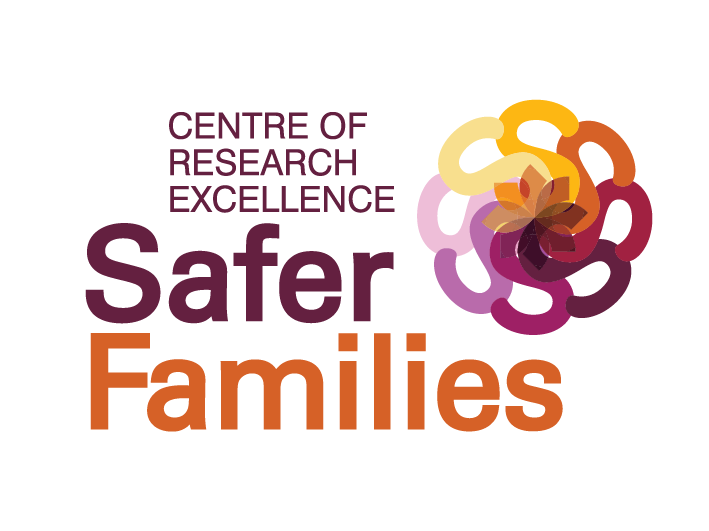World cafe summary of health system resources
Safer Families Centre produces health system programs and tools to help health practitioners identify domestic violence early, provide a first line response and promote safety, wellbeing and healing.
Domestic and family violence training in primary care
The Readiness program is a domestic and family violence education and training program for GPs, practice nurses, community health, Aboriginal Health Workers and others working in primary care. A national program funded by the Australian Government, it is aimed at strengthening the capacity of primary care to respond to domestic and family violence. To find out more, access any of the learning options or become a trainer, visit www.saferfamilies.org.au/readiness-program
Practice tools for screening and response in the health sector
Safer Families Centre has developed a range of novel interventions for use by practitioners in a number of settings. Practical to use and easy to implement, they help start the conversation when you suspect domestic or family violence is occurring and assist connection to further support. Access tools such as ACTS and LIVES by visiting www.saferfamilies.org.au/toolkit
Survivor voices: ‘Experts by Experience’
The Experts by Experience Framework was co-produced by the WEAVERs lived experience group and University of Melbourne researchers from the Safer Families Centre with support from Safe and Equal. The framework provides guidance for organisations on how to enhance collaborative work with survivor advocates and provide opportunities for survivors to influence policy development, service planning and practice. You can find out more and access the framework and its resources at www.saferfamilies.org.au/experts-by-experience-framework
Survivor voices in transforming a health system response
Safer Families Centre leads multiple research projects generating ground-breaking knowledge to build programs and tools for transforming the health sector response to family, domestic and sexual violence. The Centre works in partnership with survivors to create this work so that outputs reflect the realities of those with lived experience. Visit www.saferfamilies.org.au and go to the RESEARCH tab to find out more about projects such UNCOVER and VOICES.
E-safe relationship tools for people using or experiencing domestic and family violence
A suite of innovative tools and websites promoting healthy relationships, aimed at people experiencing or using violence, such as Beyond Silence, Better Man, and My Safety, developed by Safer Families Centre in collaboration with key partners can be accessed from the website at www.saferfamilies.org.au/healthyrelationship-tools
Hospital/health system and organisational models strengthening the response to domestic and family violence
Safer Families Centre partners with The Women’s to advocate and support sustainable screening and response in antenatal care. Star initiatives such as The REAL transformation model and The SAFE Audit tool are featured on our website at www.saferfamilies.org.au/health-system
Family violence research working in partnership with Indigenous peoples
Through listening to the voices of Indigenous peoples, Burndawan was co-designed with the Wadawurrung people as a website to provide pathways to support, safety and healing. It can be accessed at https://burndawan.com.au The Safer Families team also undertook a synthesis of voices of Indigenous peoples to develop an Indigenous health care model for health care practitioners on the elements needed for providing care that meets the needs of Indigenous peoples experiencing family violence. Our colleagues over at the Auckland University of Technology in NZ have rich learnings through working with primary care professionals to make it easier to respond to family violence in practice though their Atawhai project.
Culturally informed primary care models
La Trobe University researchers at the Judith Lumley Centre have explored in depth the needs of culturally diverse women within migrant and refugee communities experiencing family, domestic and sexual violence. The HARMONY project and Culturally Competent model for family violence include the elements needed in primary care models that enable support to these women. You can read more about these at www.saferfamilies.org.au/harmony
Family Foundations
Family Foundations (FF) is an evidence-based family intervention designed to strengthen coparenting relationships, reduce parental conflict, and promote parent mental health during pregnancy and the early years of parenting. FF is for families experiencing stress, health and wellbeing difficulties, and challenges in their family relationships including disagreements, arguments, and conflict. This work has been led by the team based at Family Health & Wellbeing in the Intergenerational Health research group at the MCRI and Merri Health. More info at www.saferfamilies.org.au/familyfoundations
Children and Young People
The broader Safer Families team based at University of Melbourne’s Department of Social Work and at La Trobe University lead multiple research projects generating effective response and recovery approaches to support women in their roles as mothers and that highlight the importance of keeping the person using violence in view. Other projects led by our team within the Department of General Practice at the University of Melbourne have focussed on young adults with topics such as tech-facilitated abuse and dating violence including amongst international students. To explore more on this area of our Centre’s work, visit our Children and Young people page at www.saferfamilies.org.au/children-and-young-people




